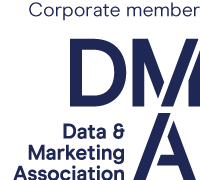2022: New opportunities for growth
Now the Christmas festivities are well and truly in the rear-view mirror and the shackles of the January blues have been shaken off, it’s now time to get marketing to new prospects. Growth strategies are being composed, and you want to market to new prospects, win new business and bring a host of opportunities to the table. Whilst this is always the ambition, there is the reoccurring matter of how to go about finding these prospects. With marketing data, there is a multitude of options out there. This can raise uncertainty in the best direction for you to go in. Thus, it's important to understand the fundamentals when navigating the world of marketing data. We have put together a short guide on some key areas to consider when you need data.
1. Don't over restrict your target audience
We receive many enquiries that are extremely concise and restrictive on the target audience. Whilst in some cases this is necessary, for instance, if you are a shoelace manufacturer, we would expect a fairly niche brief for sectors interested in your product line. However, more often than not, we find that beginning your data search with an overly detailed brief can eliminate a lot of potentially relevant customers by constraining the range of the search.
It is always in your best interest to speak to a trustworthy expert and start with the widest possible scope on the data criteria you're interested in, whether that will be targeting a wider range of industries, a variety of company sizes, or increasing the type of contacts you require. From here, you will inherit the full picture of the data that is out there.
2. Ask the right questions
When preparing questions to put to a prospective data supplier, it always seems a good idea to ask how good is your data, right? Wrong. Often responses you receive will be well trained, well versed, and perfectly articulate, but will skirt around the detail of how their product benchmarks compared with competitors in the industry. This will then have you believe that this must be the truth and my search is over. Realistically, to gain a tangible understanding of the data you're purchasing, you should be asking questions surrounding what the data accuracy guarantees are, what the legalities and data suppressions look like and if additional guidance can be provided such as samples. Good, honest, reliable list brokers will give you this information without hesitation.
3. Be wary of false truths
All too often Databroker hear that people have been burnt by purchasing lists after being promised the world, only to find out the data was not the quality they had been assured. Unfortunately, when you've been sold the dream, the reality is not so simple. Remember, like many other purchases, if the offer is too good to be true, it's probably worth avoiding.
In data, it's imperative you ask the right questions to decipher whether the information being provided to you is accurate and reflective of the list available. If possible, when you are unsure of the credentials of the list you have been offered, speaking to an independent intermediary like a list broker will be extremely beneficial.
Brokers have no reason to blow smoke or to sugarcoat a data list. Similar to an insurance advisor, their job Is to make you aware of the options you have available and to help you get the best possible deal for the campaign and budget that's in mind. By doing this, you will gain a better understanding of the entire market, bringing clarity to your decision-making.
4. Understand not all data is the same
A common misconception in data is that it’s a one size fits all approach, ‘it’s all the same quality and will yield the same results no matter where I get it from’. Think about this in another scenario, would you trust an offer for a 2-week luxury holiday in the Maldives priced at £150? No, you wouldn’t.
Time and again we hear from prospects, who have been told they will be receiving the Rolls Royce of data whilst paying a minimal rate, but then soon find out that their emails are bouncing, compliance issues are arising and they can’t seem to reach their account manager.
As brokers, we have an asset you can't buy or gain yourself: experience. Why is this experience beneficial? Experienced brokers are well equipped to advise on the warning signs to look for and the red flags that arise with cheap, low-quality data, stopping you wasting both your time and your resources.
5. Make sure you have open communication on compliance
When you’re sitting down and looking to make a real assessment of your options, it’s imperative that the compliance protocols of the supplier has been clarified. You will find in some cases that the topic of compliance is not one that some suppliers will be comfortable speaking about. Good suppliers will openly speak to you about data compliance and will give you the information without asking. It’s vital you work with companies that have good data credentials to ensure that the lists comply with ethical, and legal marketing standards.
Compliance at Databroker is two-fold. Firstly, we ensure that all our suppliers pass regular, in-depth compliance checks. Secondly, we check our prospective customer too. No purchase from Databroker will move forward without completion of a detailed customer compliance form.
6. Have your budget clearly planned out
Knowing where to invest your budget is key for businesses. It can be tough to make decisions on where to invest your money and who you can trust. Again, using a broker to establish the truth and receive honest advice on where your budget would be best spent is extremely beneficial. You will at the very minimum, be able to make a well-informed decision on what is best for your business.
7. Do your research into data procurement
Do your due diligence. Make sure you adhere to UK and EU direct marketing laws. Think of the ethics and brand implications of using poor quality or illegal marketing data. Buy from Data Marketing Association (DMA) members only. And most importantly, don't waste your own time – speak to data experts.
Still need a little help? Contact us today and we’d be happy to discuss your data requirements.






